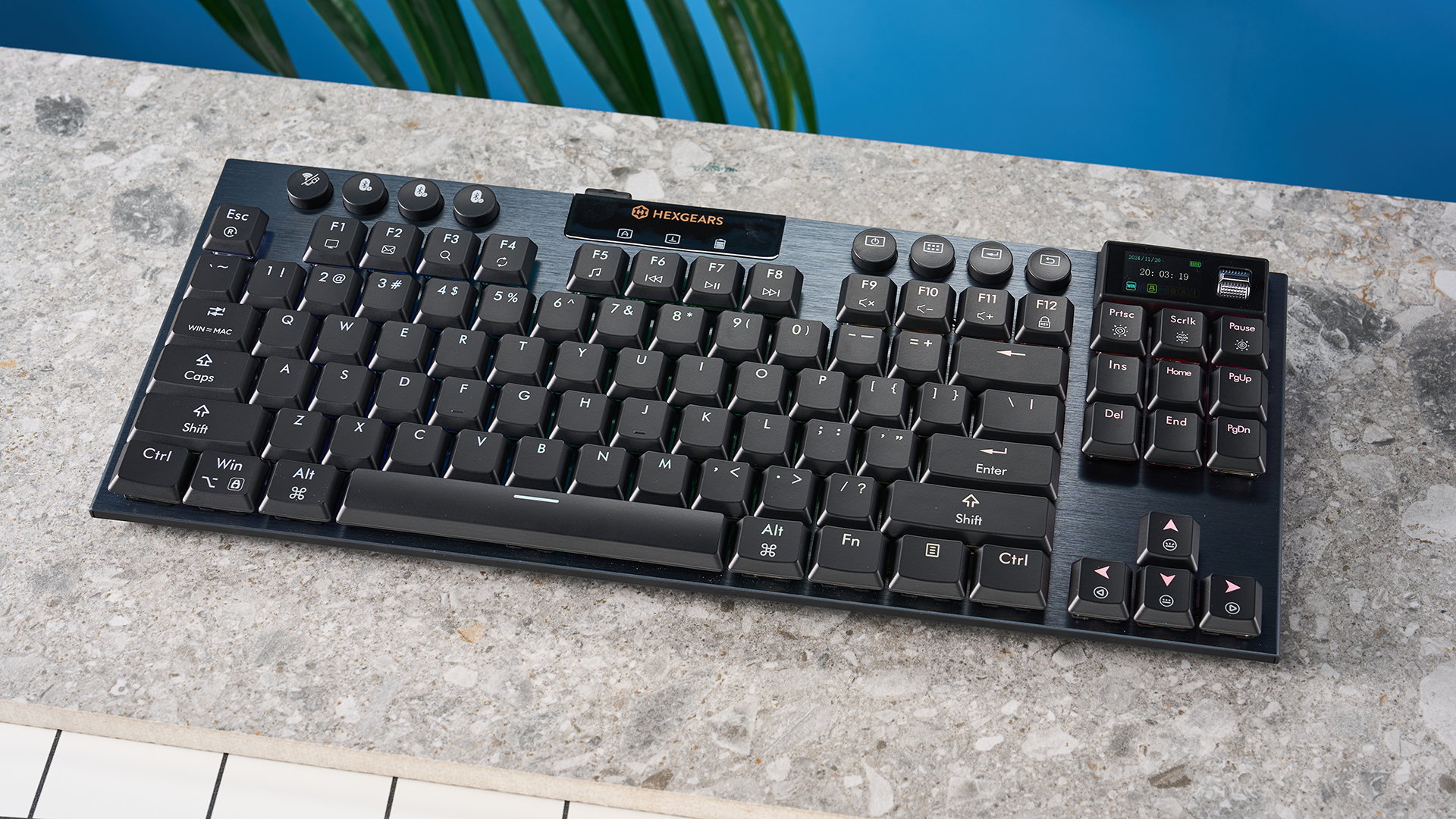
How low can you go? Ask the Hexgears Immersion A3 TKL, perhaps my favorite low-profile (LP) keyboard from here on out. Typing for a living is fun, but I need a reliable keyboard that can keep up with my fingers, and the Immersion A3 TKL is exactly that.
Offering a dreamy and creamy typing experience thanks to Kailh LP switches and Hexgears’ LP keycaps, I’ve never felt more productive. It’s good for casual gaming too, and its build, design and customizable RGB lighting and TFT screen earn it a good few brownie points.
That isn’t to say it’s flawless, and just like most other peripherals, there’s some room for improvement. Is it still one of the best mechanical keyboards? Read my full Hexgears Immersion A3 TKL review to find out.
Hexgears Immersion A3 TKL review: Specs
Hexgears Immersion A3 TKL review: Cheat sheet
- What is it? A very low-profile mechanical keyboard with a 75% layout
- Who is it for? For hardcore typists and casual gamers alike
- How much does it cost? The Hexgears Immersion A3 TKL is available for $129 / £101
- What do we like? The awesome build quality, excellent and smooth typing experience, 1,000Hz polling for gaming, lovely RGB that shines through keycaps, and the customizable screen
- What don’t we like? Keycaps are fingerprint magnets, and you can’t change profiles on the fly
Hexgears Immersion A3 TKL review: The ups
Where do I even begin with all the things this keyboard does right? From its build quality and design to the wonderful typing experience and customizable TFT screen, the Hexgears Immersion A3 TKL is a winner.
Amazing build
If you’re looking for a sturdy keyboard, the Hexgears Immersion A3 TKL is it. The top plate is made of aluminum, which is not just durable, but gives the keyboard a premium look and feel, too. It’s thick and well-placed so there’s no flex. The bottom plate is made of thick ABS plastic but it doesn’t look or feel cheap. A layer of sponge sits between these two plates and absorbs any and all vibrations so typing sound is heavily damped and quiet. The NuPhy Air75 V2 ($119) is cheaper but it sounds hollow and is quite plasticky, making the Immersion A3 worth the extra spend.

This keyboard is thin, measuring just 14.17 x 5.74 x 1.22 inches. The Lofree Flow84 is a little thinner at 12.4 x 4.9 x 0.9 inches but it costs more ($159). If you can’t afford the Flow84, the Immersion A3 is a superb alternative. It’s quite light too, weighing 1.67 pounds. It doesn’t take up much space on the desk, making it perfect for setups where desk space is at a premium. Despite being so lightweight, the Immersion A3 TKL never slips or moves about, thanks to the three rubber pads on the bottom plate.
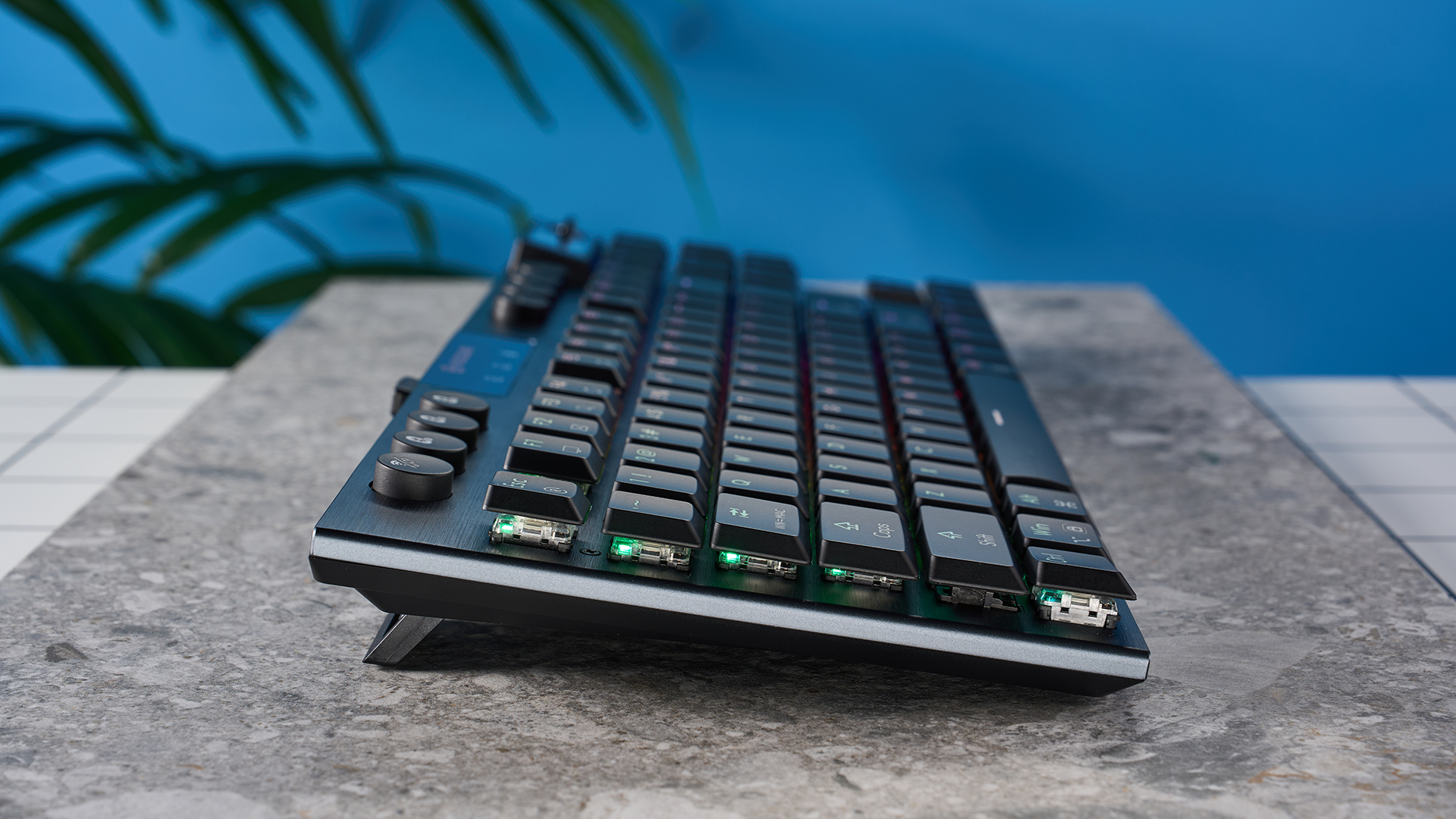
Overall, the build quality is excellent and you’re getting your money’s worth. It’s similar to the quality of the Turtle Beach Vulcan II TKL Pro ($149) but $20 cheaper. The Immersion A3 TKL is also hot-swappable (you can choose between clicky, linear and tactile Kailh switches), which Turtle Beach’s offering isn’t.
Types like a dream
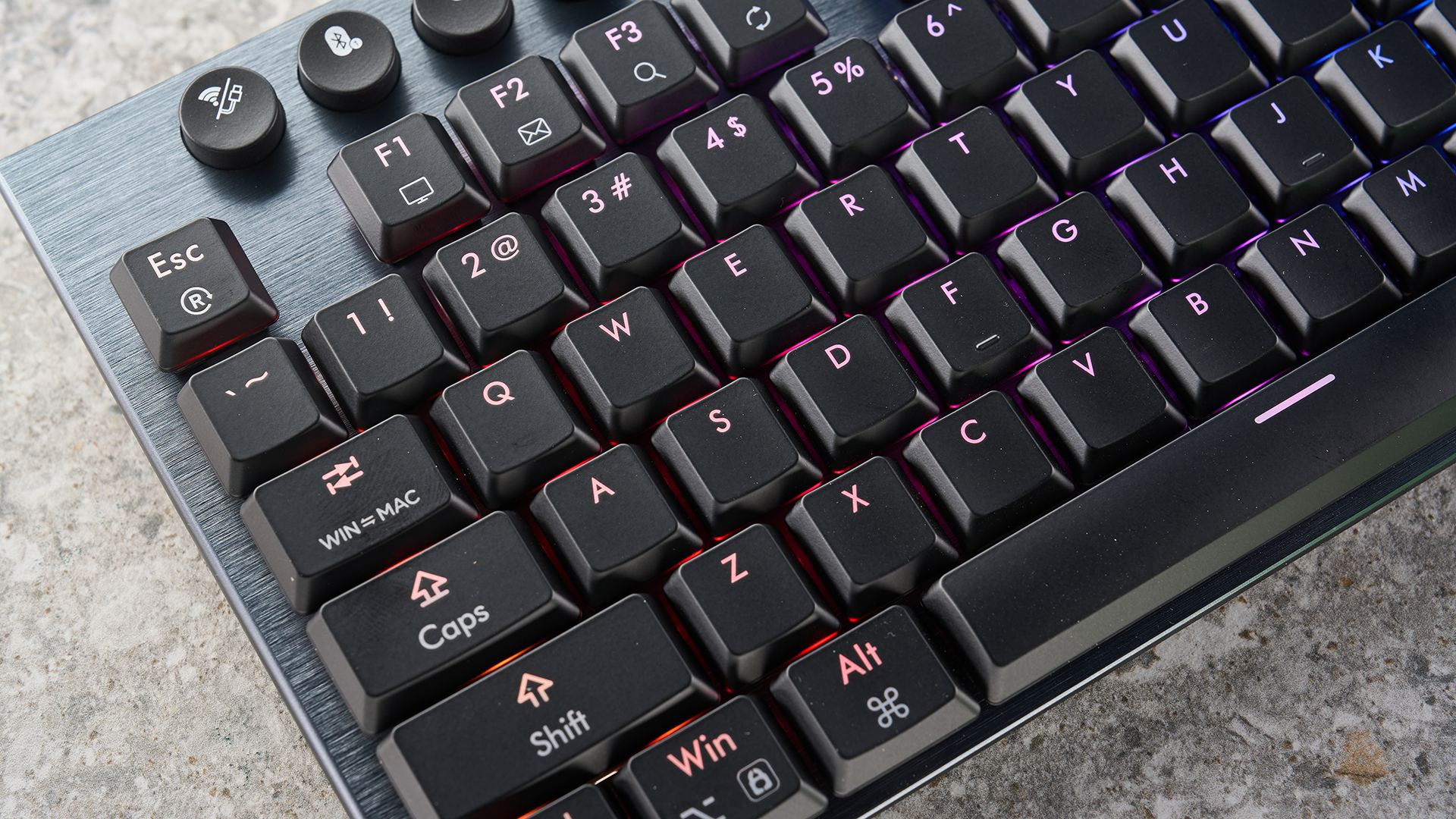
I type for a living, which means I bash out approximately 7,500 words a week, so I need a good keyboard that can keep up. The Hexgears Immersion A3 TKL is just that. It’s a typist’s dream, offering nothing short of a beautiful experience. I tested the Kailh White Rain linear switches, which are probably the quietest ones I’ve ever tested, and they give good feedback, too. My coworkers could barely hear me typing, so this keyboard is perfect for the office.
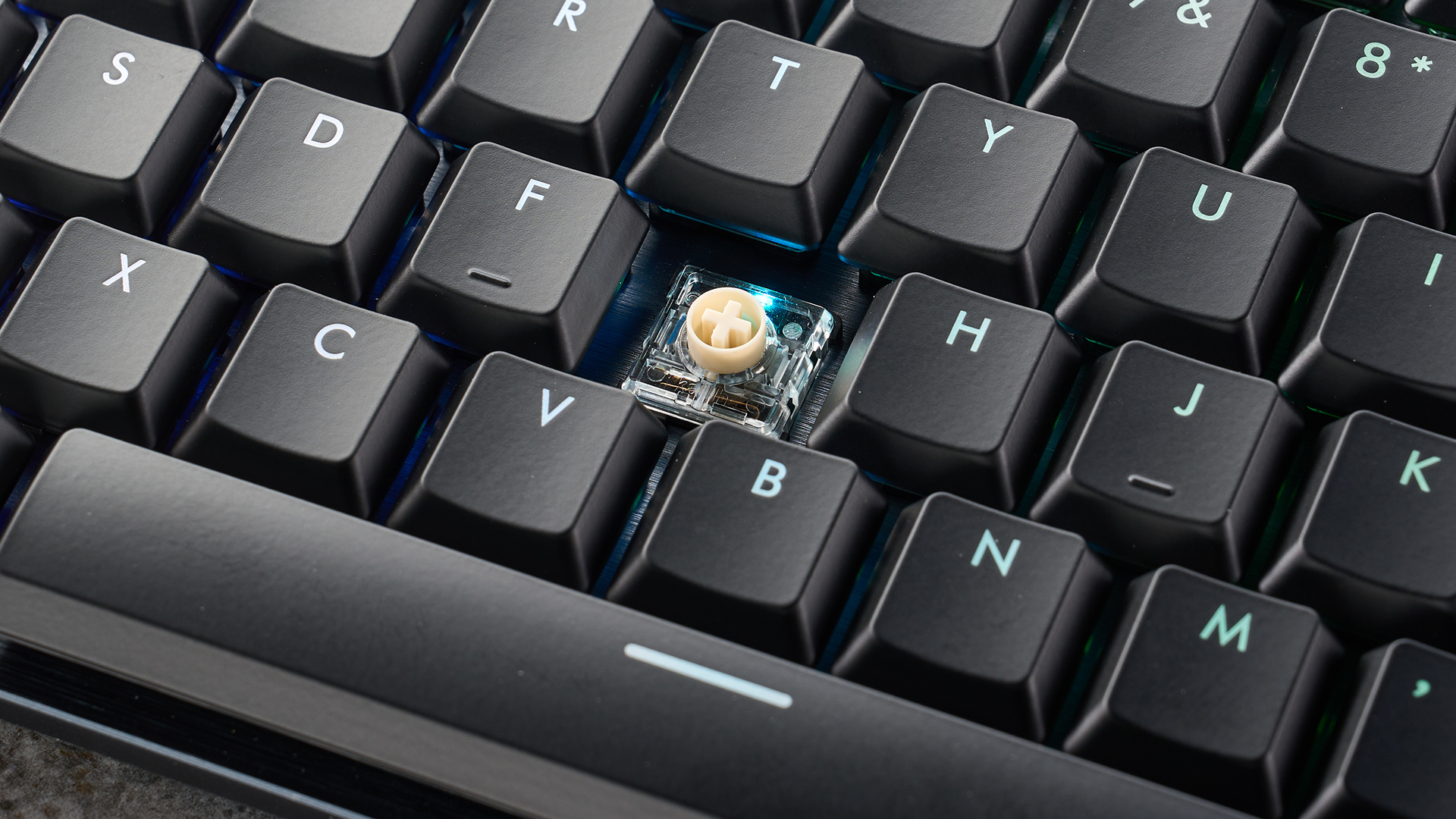
Compared to standard-profile switches, low-profile switches are easier to activate as they have a lower actuation point. The White Rain switches have a 1.2mm activation point and require 50g to register key presses. This isn’t that light as mechanical switches go, but you can always get the keyboard with Black Cloud switches instead, which require 45g to register key presses. Basically, you don’t need to press down too hard or for too long for the switch to activate, making for a more comfortable and intuitive typing experience. If you want even lighter switches, the NuPhy Air75 V2 can be specced with very light ones in the 35-40g mark.
Regardless, I’ve loved using the White Rain switches. Also contributing to the wonderful typing experience are the low-profile keycaps. You don’t need to raise your wrist too much, which makes the keyboard ergonomically friendly. It’s been a pleasure using the Immersion A3 TKL and it’s going to replace the Gamakay LK75 ($129) as my daily work-from-home driver.
I took a typist test at 10fastfingers.com to see how the Immersion A3 TKL compared to other keyboards I’ve tested, and the results speak for themselves, as you can see above.
Good for gaming
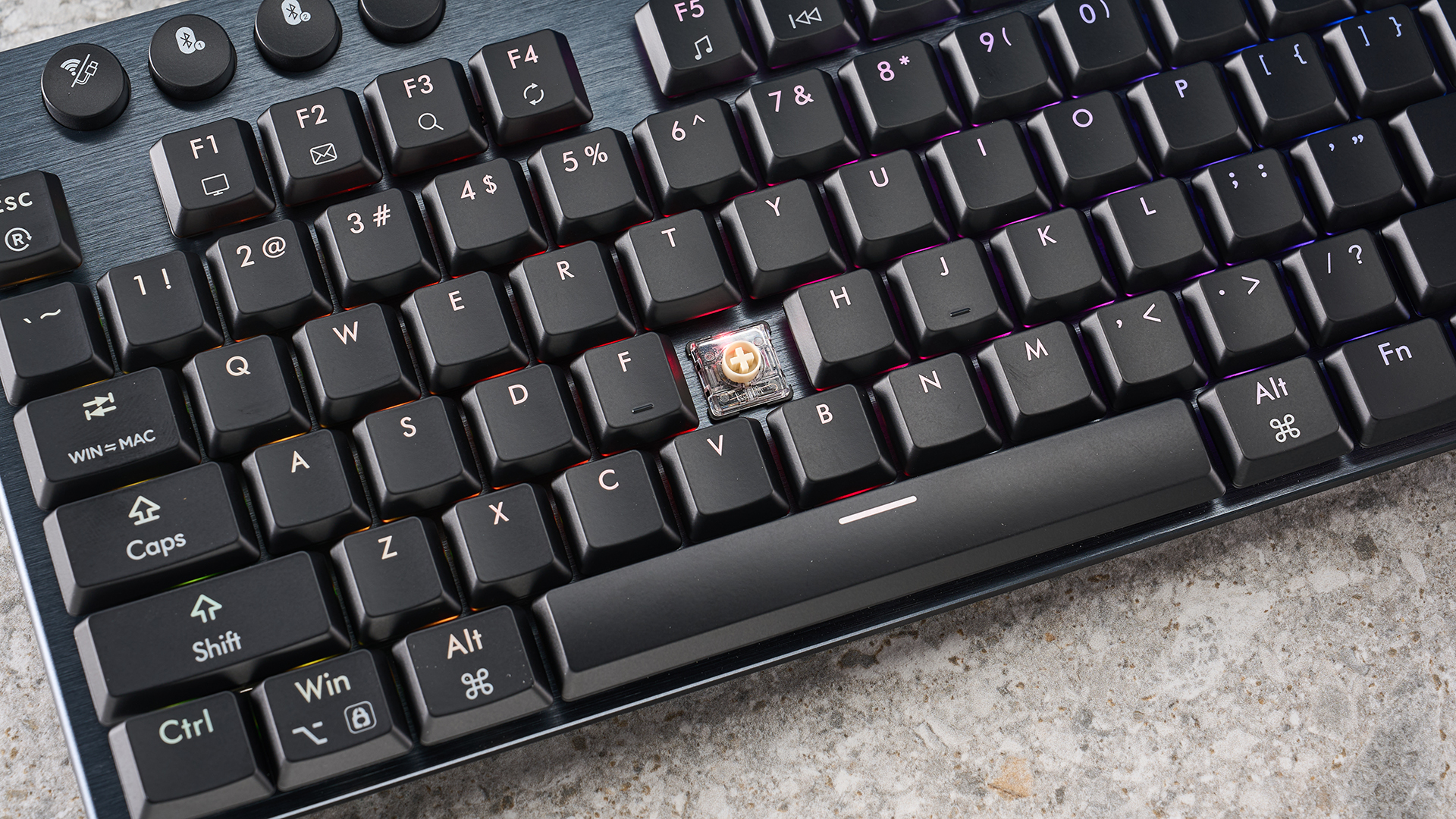
The Hexgears Immersion A3 TKL has a 1,000Hz polling rate, making it a good keyboard for casual gaming. If, like me, you love playing video games in your downtime, you’ll be satisfied with the Immersion A3 TKL. I fired up a few games to see if it held its own, and it certainly did. The keycaps are soft, contributing to a comfortable experience, especially for long sessions, and the switches are highly responsive. The 75% layout also means that you have more space to move your mouse around, which is great for games like Counter-Strike 2 or Lies of P.
In my testing, the keyboard performed well in the likes of CS2 and Hitman 2016. The shorter actuation distance of the low-profile switches was noticeable in CS2 where I could quickly crouch, strafe and sprint without having to press each key to the fullest. While this keyboard is well-suited to casual gaming, I’d recommend competitive players to invest in the similarly priced NuPhy Air60 HE ($139) instead — it’s a magnetic keyboard that has multiple actuation points. But if a 60% layout isn’t your thing, try the Keychron K2 HE ($130) instead — it’s our top pick for best gaming keyboard.
Lovely RGB
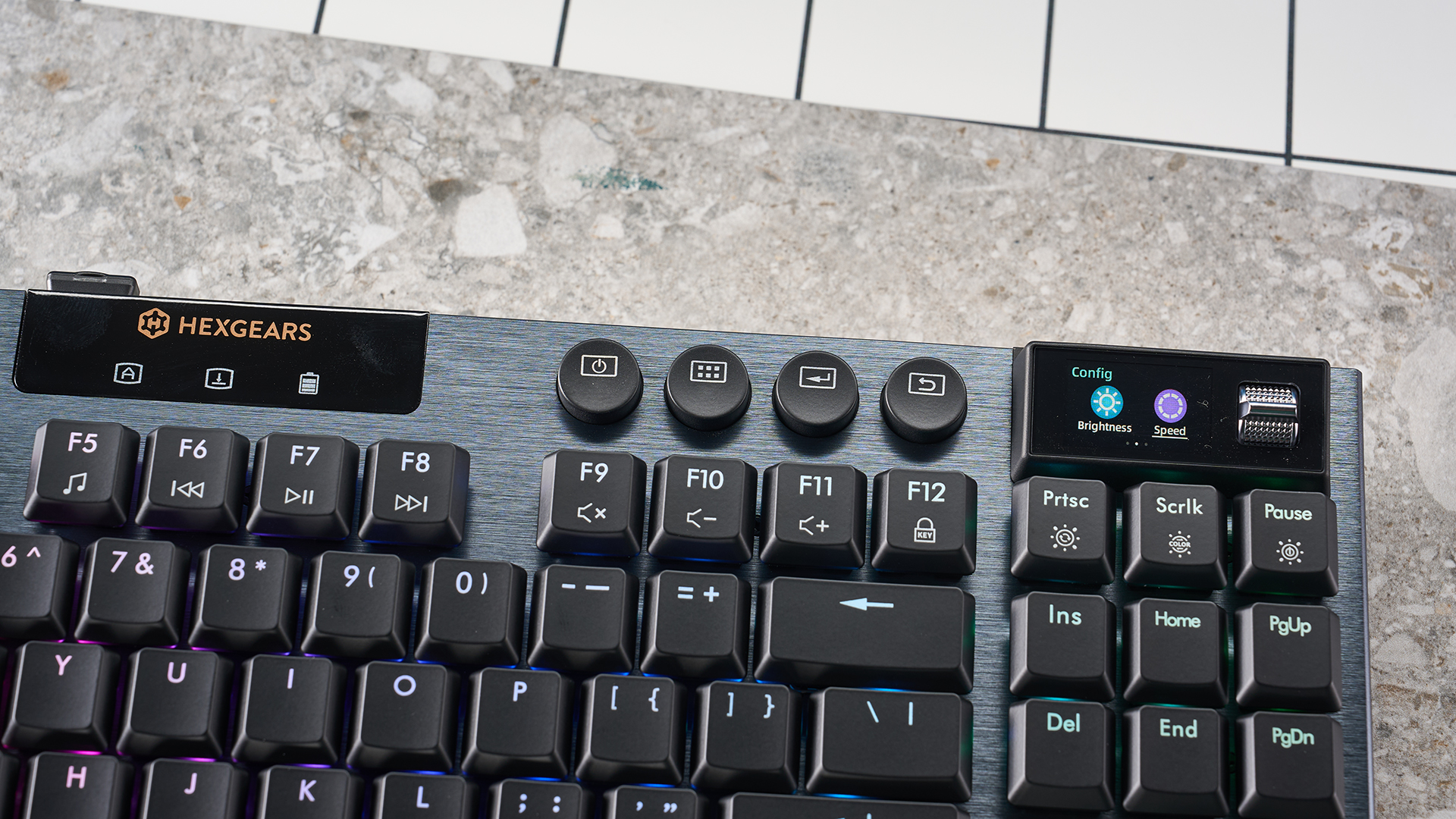
If you love RGB lighting but don’t want it to be so loud that it draws eyeballs to your desk, you’ll be happy with the Hexgears Immersion A3 TKL. Even at the highest brightness, its RGB lighting isn’t garish, and you can quickly adjust the brightness and speed via the TFT screen in the top-right corner. Also, the keyboard is fitted with shine-through keycaps so you can appreciate the backlighting in all its glory. That’s also handy for those not accustomed to touch-typing as you can see the legends in the dark. There are a total of 19 effects to choose from via the screen and you can personalize the colors further by diving into the no-frills companion software of the same name.
Straightforward companion software
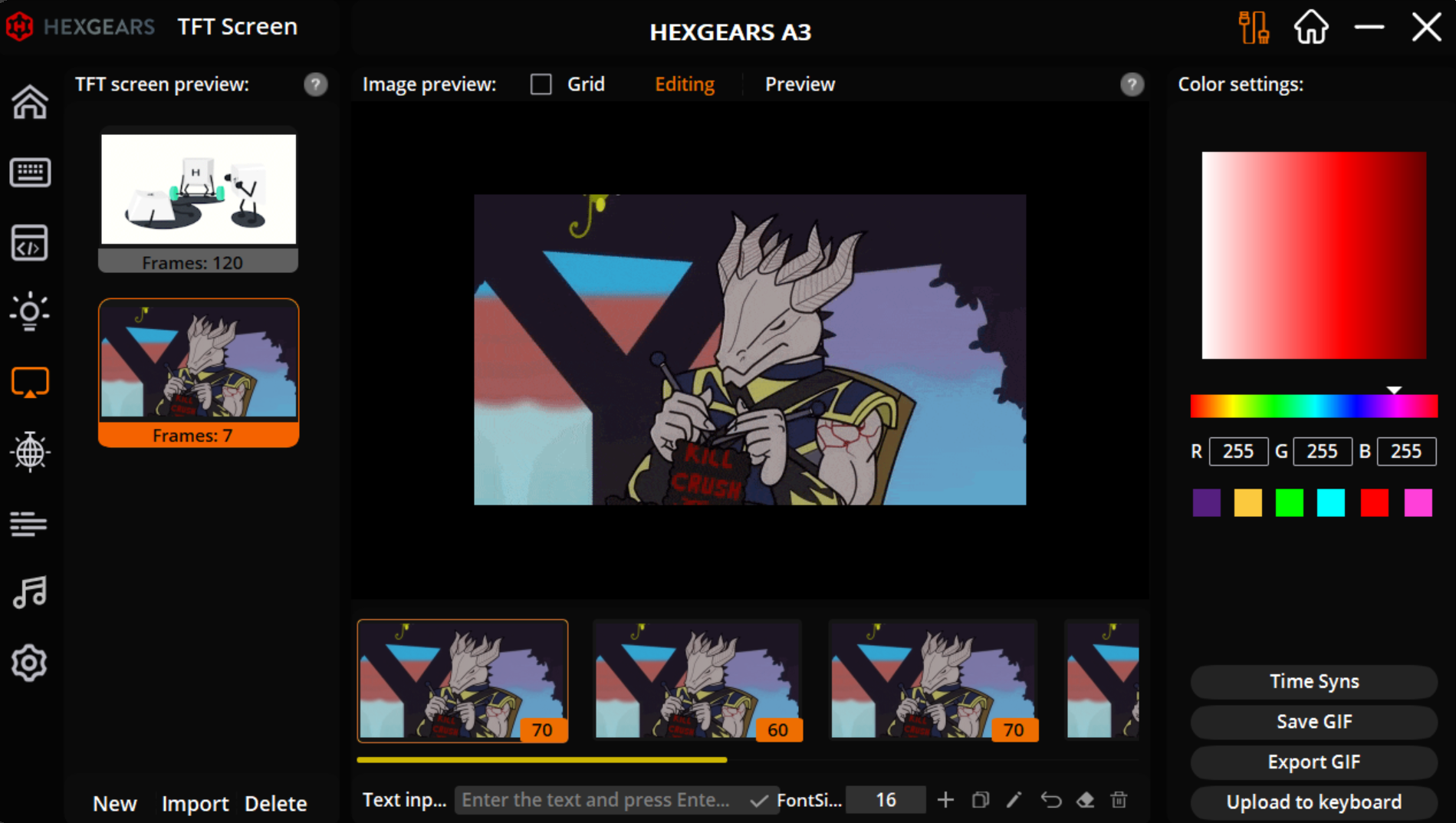
This brings me to my next point: the Hexgears A3 companion software is very easy to use. As mentioned, you can use it to customize the RGB lighting, add GIFs or static images to the screen (more on that in a minute), remap keys, program macros and switch profiles. While the keyboard isn’t QMK-enabled like the NuPhy Air75 V2 or the Keychron K13 Max, at least it has its own dedicated companion software, unlike the Lofree Flow84.
Customizable screen
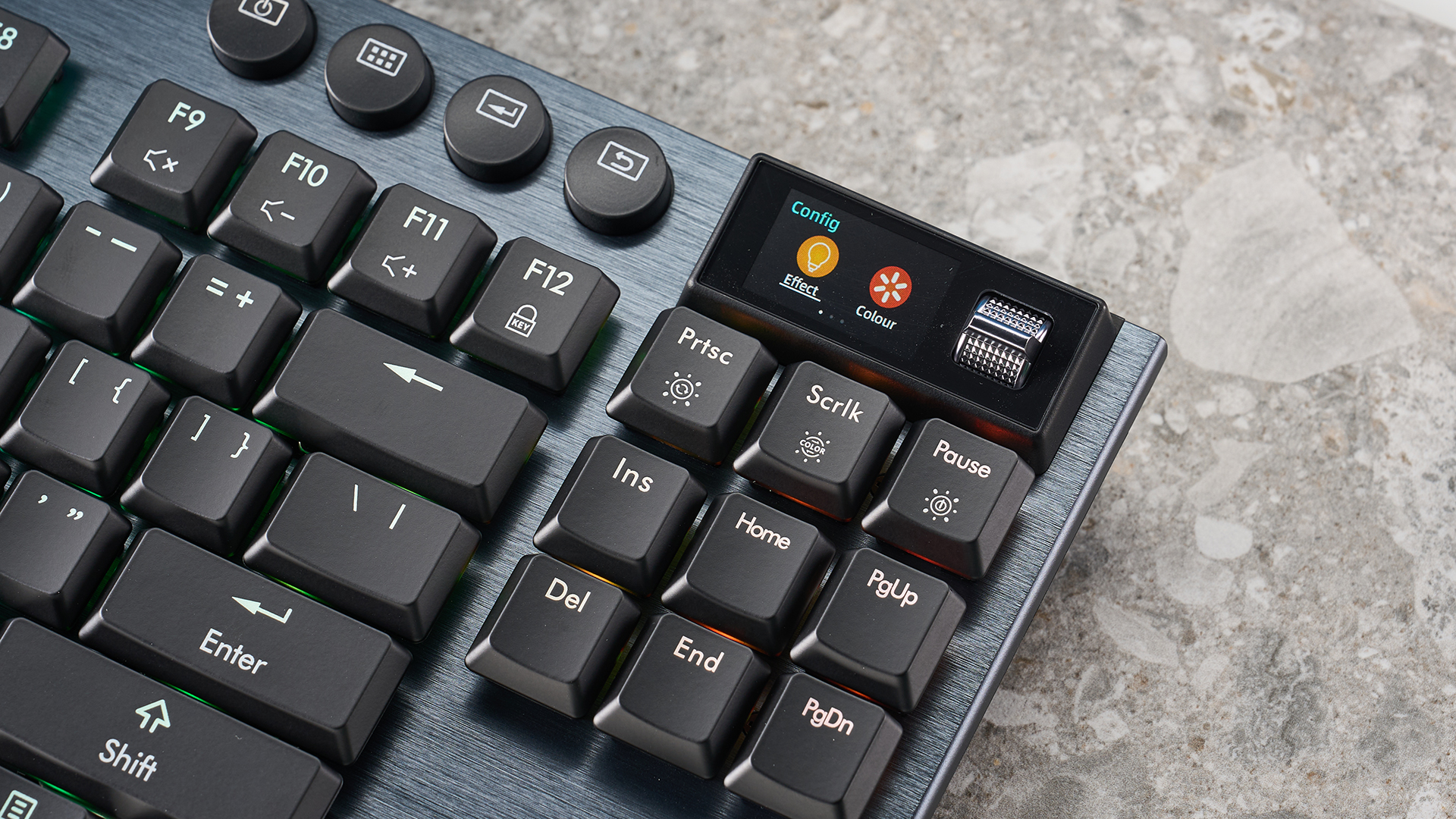
When I tested the Gamakay LK75, I loved the customizable screen in which you could upload static images or GIFs, and it made me wish every keyboard had a screen. The Hexgears Immersion A3 TKL does and I love it. It might be gimmicky, but I’m eating it up.
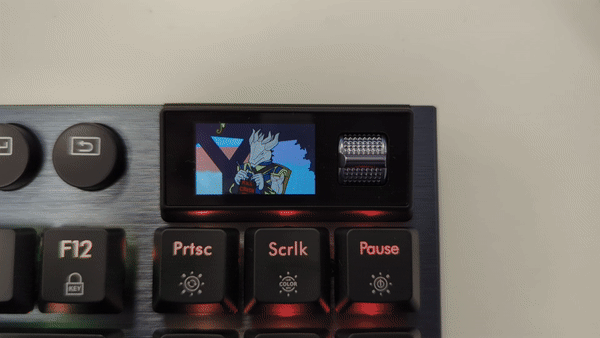
Using the companion software, you can quickly upload GIFs or static images. The TFT screen is of much higher quality and resolution compared to the LK75’s, as colors are brighter and details are sharper. I really like the screen as it allows me to add a personal touch to my office space. I promptly uploaded a GIF of The Dark Urge from Baldur’s Gate 3 knitting (as seen in this video by Larian Studios).
Mega battery life
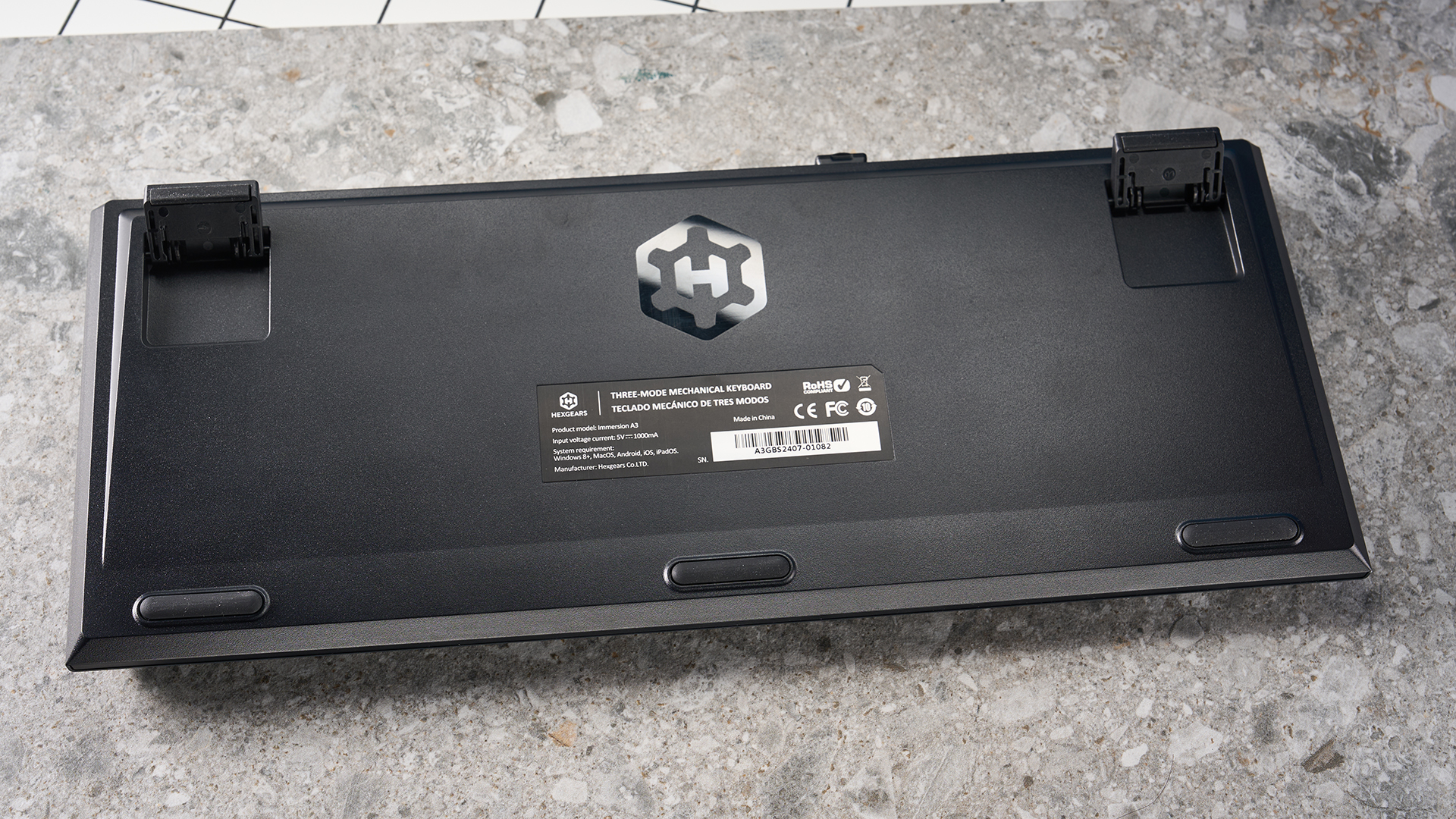
The Hexgears Immersion A3 TKL’s battery life is the cherry on top of the cake. It’s fitted with a 5,800mAh battery and Hexgears says that a single charge should last you 50 hours with the RGB on full blast while the screen displays a GIF. I’ve used this keyboard for a full week’s worth of typing, with RGB on, and the battery life has only dropped down to three out of five bars. In contrast, the pricier Lofree Flow84 uses a smaller 2,000mAh battery while the similarly priced NuPhy Air75 V2 and the Keychron K13 Max (starts at $94) both utilize 4,000mAh batteries.
Hexgears Immersion A3 TKL review: The downs
There isn’t a lot wrong with the Hexgears Immersion A3 TKL, as this is a very loveable keyboard. It has just a couple of quirks, like keycaps getting shiny quickly and not being able to swap between profiles on the fly.
Keycaps can get shiny
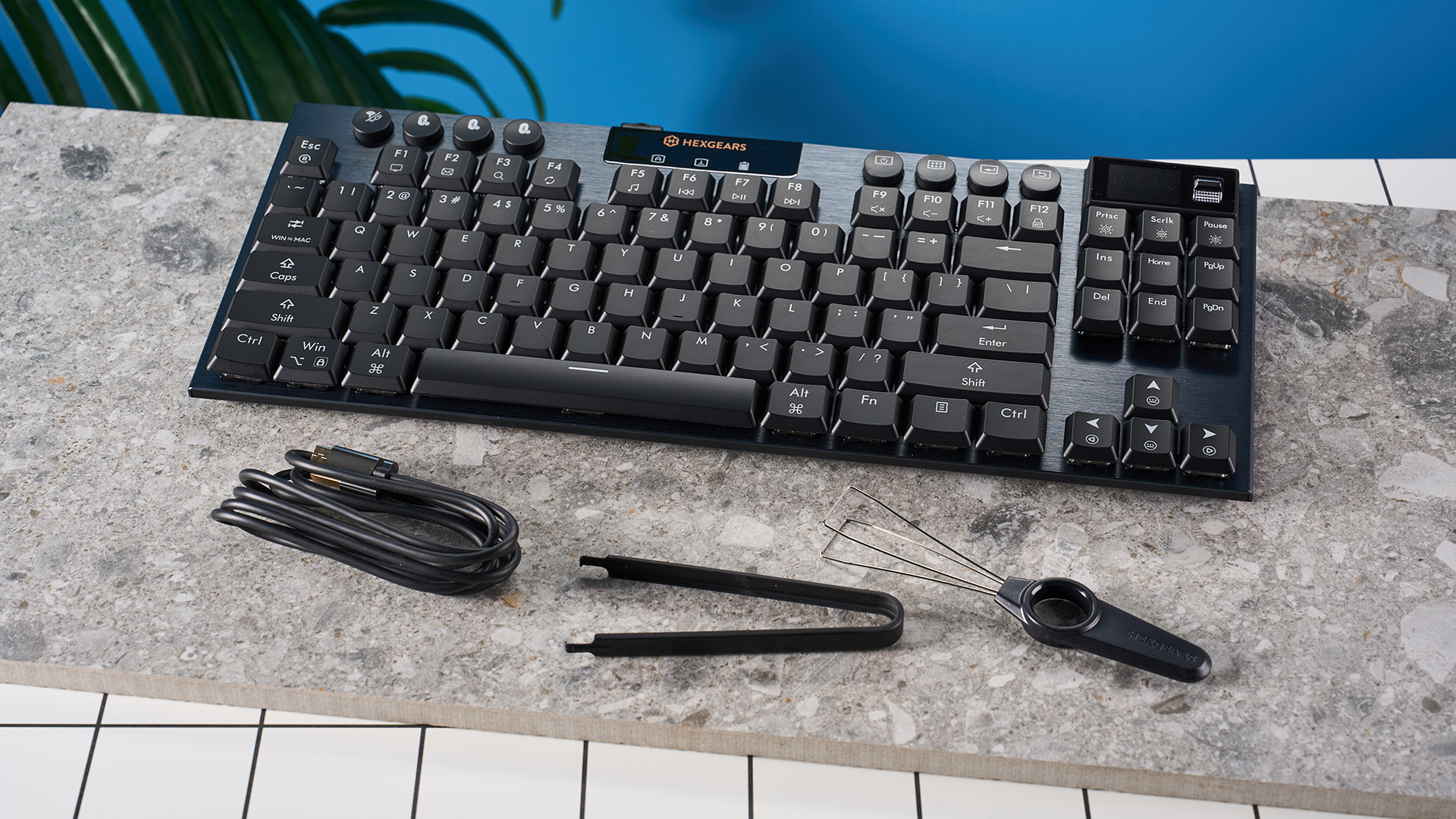
The Hexgears Immersion A3 TKL is fitted with polycarbonate plastic keycaps. This material is similar to ABS and both share the tendency to get shiny. These keycaps aren’t as durable as PBT keycaps, like the ones on the cheaper Keychron K13 Max ($94) or the similarly priced NuPhy Halo75 V2 ($129). Over time, they can start appearing shiny. Well, for me, this happened an hour into using the Immersion A3 TKL. I could clearly see — and still can, as I write this review — my fingerprints on its keycaps. Even after wiping them down, I could see the remnants.
Profiles can’t be changed on the fly
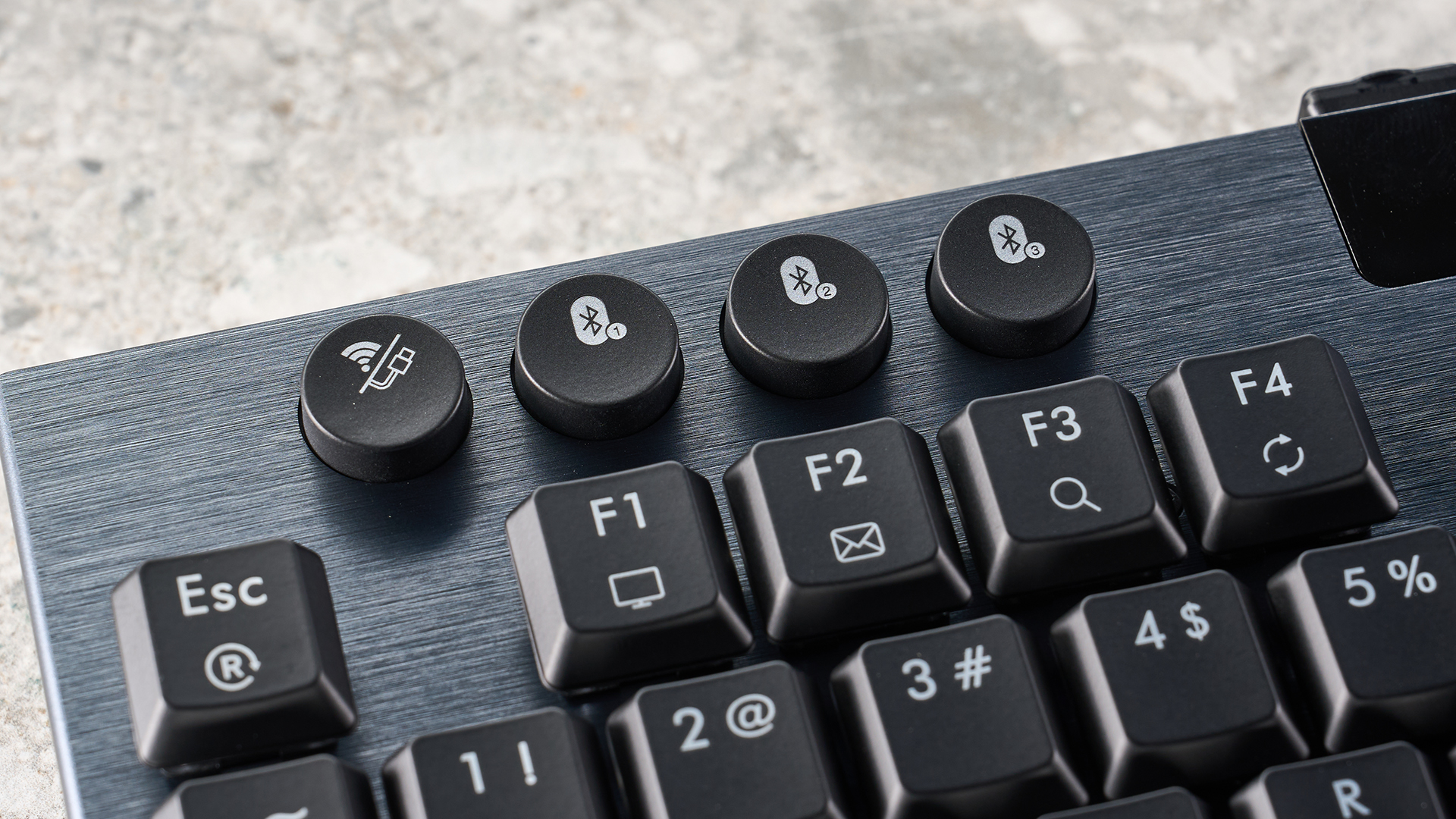
Hexgears markets the Immersion A3 TKL as a gaming keyboard which is all well and good, as it boasts specs fit for work and play, but one annoying thing about the keyboard is that you can’t change profiles on the fly. You can’t use the screen to cycle through profiles, and there aren’t any keyboard shortcuts to do this either (which most NuPhy and Keychron boards feature). Using key combos to change profiles would have been handy to swap between, especially depending on the game’s genre. If you want to change profiles, you’ll have to fire up the companion software every single time, which can prove to be frustrating.
If you want switchable profiles, the Keychron K2 HE is a fantastic alternative, or even the Keychron K13 Max, which lets you switch profiles via the web-based Keychron Launcher — you won’t have to worry about bloatware that way either.
Hexgears Immersion A3 TKL review: Verdict
As low-profile keyboards go, the Hexgears Immersion A3 TKL is one of the finest. For $129, typists and casual gamers alike will be pleased with its performance in both areas. I love the Kailh linear switches I tested and going forward, I’ll compare all linear switches to them. They offer a smooth typing experience, making this keyboard an excellent choice for productivity. The 1,000Hz polling rate combined with the responsive switches is great for gaming in your downtime, too. The build quality is fantastic and sturdy, as is the gorgeous RGB lighting and customizable TFT screen.

However, I would have preferred PBT keycaps. The PC keycaps the Immersion A3 TKL uses are soft, but they’re also frustratingly fingerprint magnets. What’s also frustrating is that you can’t change custom profiles via the screen or keyboard shortcuts — this missing feature would have given this keyboard the competitive edge.
Regardless, the Immersion A3 TKL is very loveable and one of the best keyboards I’ve used so far.







